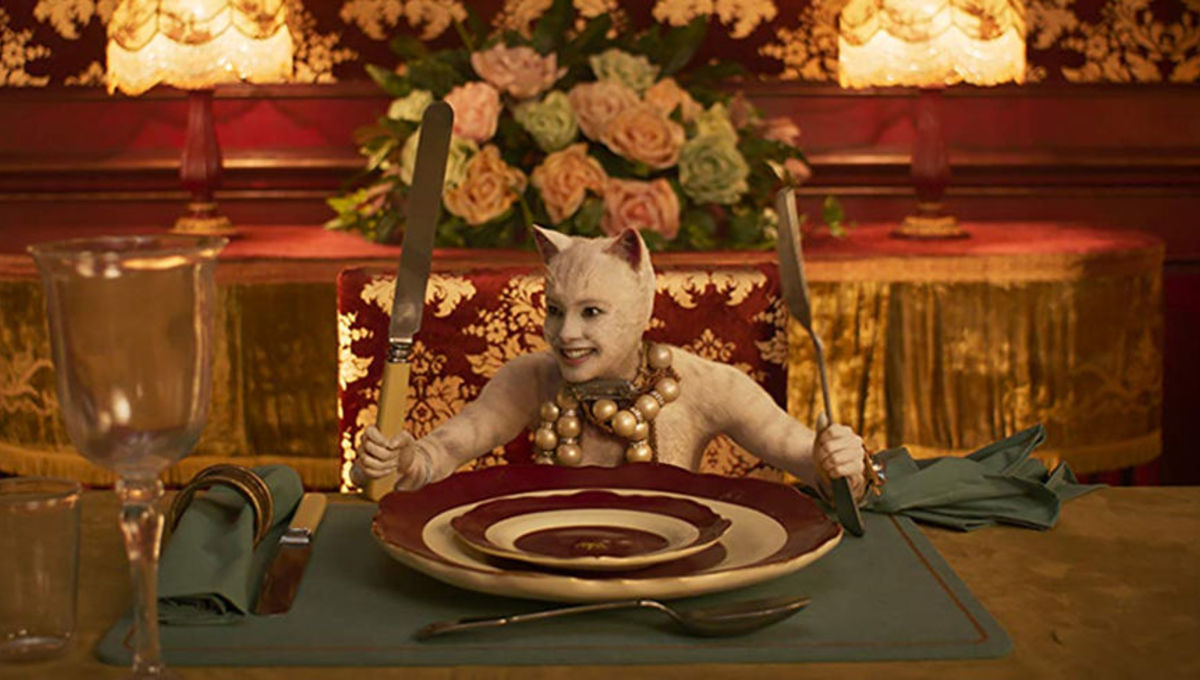
Kyle Brunet has been a staff writer for the Hassle’s film section since 2016. –OG
Though 2019 started out VERY weak, I’m happy to report that the last year in the decade proved to be one of the best in terms of quality cinema. Narrowing my list to my top 10 was hard; so hard, in fact, that I was considering boosting this list even higher than last year’s 15 (which, looking back, was a mistake) but alas, having moved and just started a new job, my time was very limited. So I’m going to keep this brief, since I already wrote 2500-something words already:
– Cats is unfortunately not on this list as I didn’t have the chance, or the will, to watch it. If I did, it would undoubtedly be my favorite film of the year.
– I’m still angry that Star Wars: The Rise of Skywalker sucked.
– There’s no Joker on this list so move along if you were expecting it.
With that out of the way, let’s do this:
10) The Art of Self-Defense (dir. Riley Stearns)
I think it’s fitting to start out my list with a film that I felt was highly underrated and unfortunately forgotten as the year flew by. The Art of Self-Defense is a strange love child of Napoleon Dynamite and Fight Club that is not only hilarious, but one of the most intense films of the year. Between the surprisingly gory results of every act of violence and the scathing look into the negative impact toxic masculinity can have on individuals and the world around them, this film is a lot more than meets the eye. All of this insanity is coupled with a cast featuring no weak links; Imogen Poots chewing up the scenery, Alessandro Nivola’s terrifyingly hilarious sociopathic Sensei, and Jesse Eisenberg’s best performance since…The Social Network maybe? The Art of Self-Defense is a blast, and I cannot recommend this movie enough. You’ll laugh, you’ll cringe, and you’ll feel more than you expected to feel.
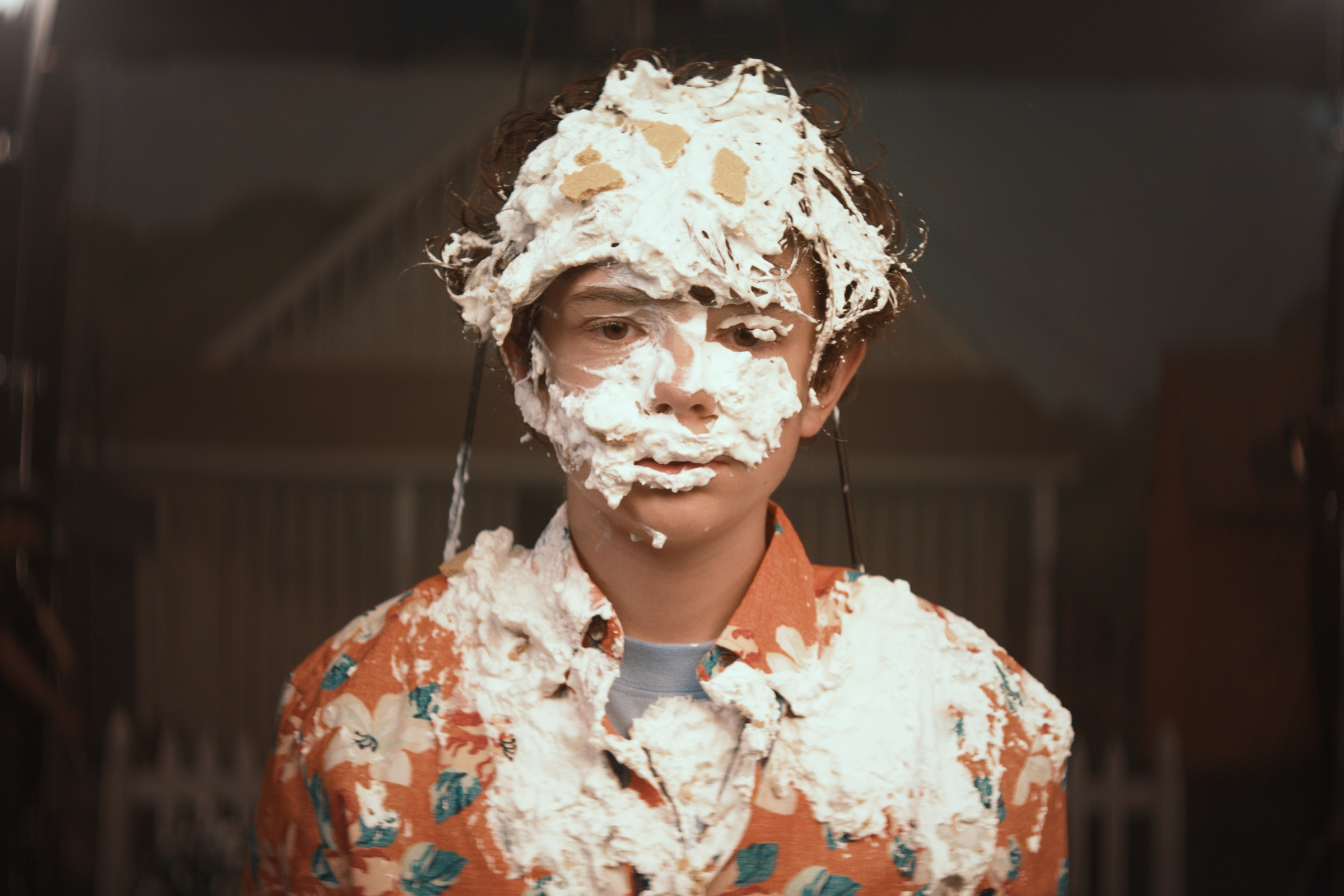
9) Honey Boy (dir. Alma Har’el)
“Make me look good, honey boy.” Shia LaBeouf’s semi-autobiographical look into the relationship between him and his dad will probably go down as one of the hardest films to watch this year. Not only is it deeply personal, conveying a sense of intimacy that makes you feel as if you’re peering into Shia’s life without permission, but its realistic showcase of child abuse lends itself to being a more complicated and nuanced display of artistic therapy. I wrote a review if you wanna read more of my thoughts about this film, but take my word on this one: if you wanna ruin your day emotionally, make sure you watch Honey Boy.
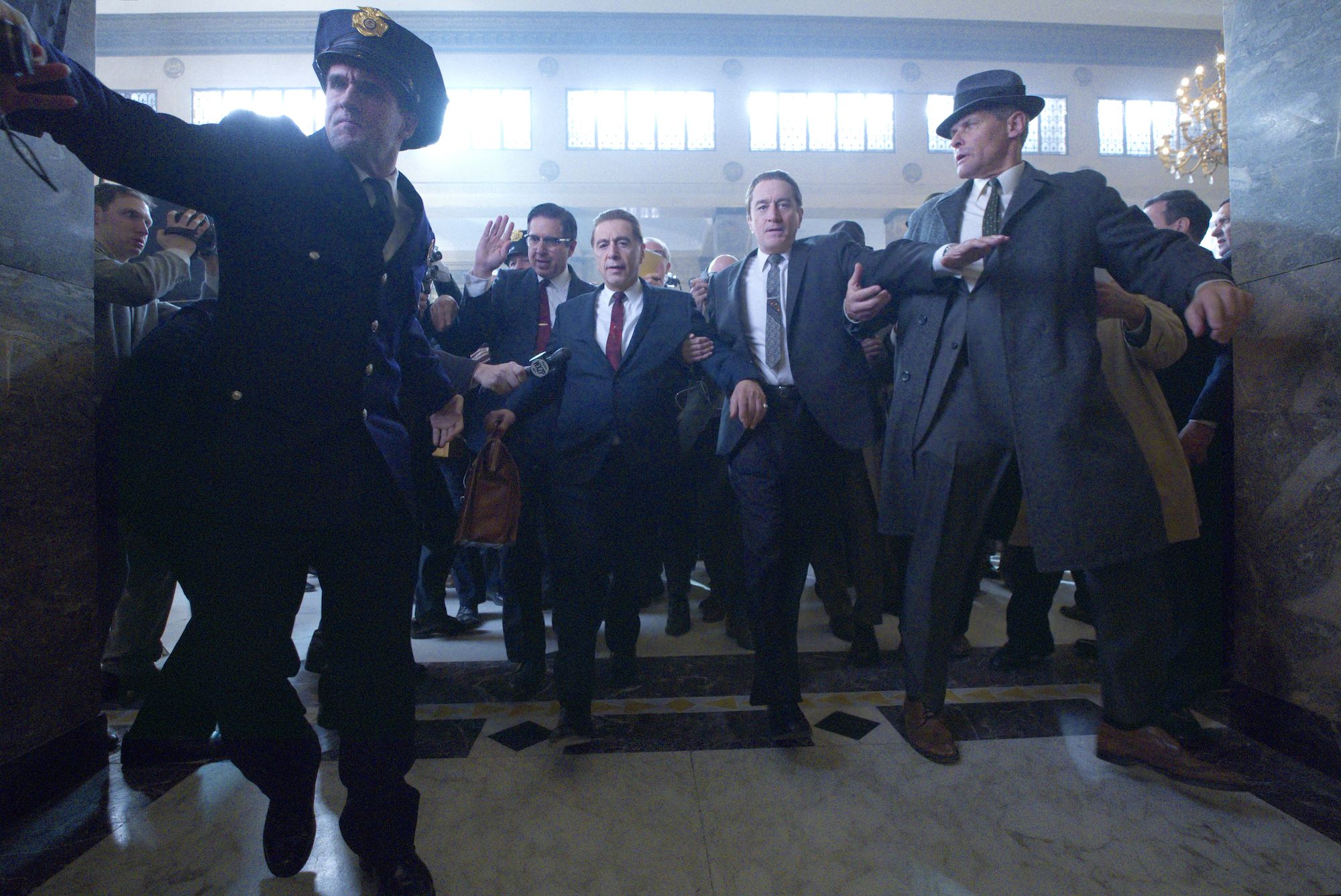
Teamster lawyer Bill Bufalino (Ray Romano) and Frank Sheeran (Robert De Niro) escort Jimmy Hoffa (Al Pacino) to court. Photo Credit: Niko Tavernise. © 2019 Netlfix US, LLC. All rights reserved.
8) The Irishman (dir. Martin Scorsese)
You’ve probably read a lot about The Irishman, so I’ll try to keep this one as simple as possible. Martin Scorsese has crafted a near-perfect career ender (if this does turn out to be his last film): a thoughtful look into a man’s career as he stares deeply into the face of the great beyond. Robert De Niro portrays gangster Frank Sheeran with a sense of loss for the life he missed, a completely different take on the irreverent gangster Scorsese is known for portraying. It’s De Niro’s performance that perfectly encapsulates the entire film; while you get the fun gangster moments from such past romps as Goodfellas or Casino for the first two hours, it is in the last hour where The Irishman transcends the genre and Scorsese’s whole filmography. The fun, almost hilarious look into the relationship between Sheeran and Al Pacino’s Jimmy Hoffa (which, if you know about the history of Hoffa…ouch) makes way for a contemplative and heartbreaking conclusion, one that leaves a pit in your stomach. A simple write up on a list will not suffice, so let me steer you to Hassle film editor Oscar Goff’s own review for this Scorsese masterpiece, in which he expresses his feelings a lot better than I ever could.
I’m going to get some hate for putting this so low on my list, and for that, I’m not sorry.

7) Hustlers (dir. Lorene Scafaria)
I know it may seem blasphemous to put a movie attempting to capture the tone of a Scorsese film above an actual Scorsese film, but this is my list and not yours, so sorry not sorry? Yeah, I love Hustlers, and if anything this may be the most entertaining film of the year. A surprisingly heartfelt romp through the life of a few strippers, led by J-Lo’s career defining performance as Ramona, whose struggles to make ends meet after the 2009 financial collapse lead them into a world of crime– in this case, drugging and robbing their Johns to fund their luxurious lifestyle. Yet even while committing these asinine crimes, never does director Lorene Scafaria make it a habit to denigrate these women, a fine line that could have easily been crossed if made by a male director. Instead, Scafaria deals more with their relationships and how each one is tested through these troubled times. And that’s really the beauty of Hustlers: to have a film that, while superficially similar to other crime films such as Goodfellas, is truly about love, relationships, and friendship.
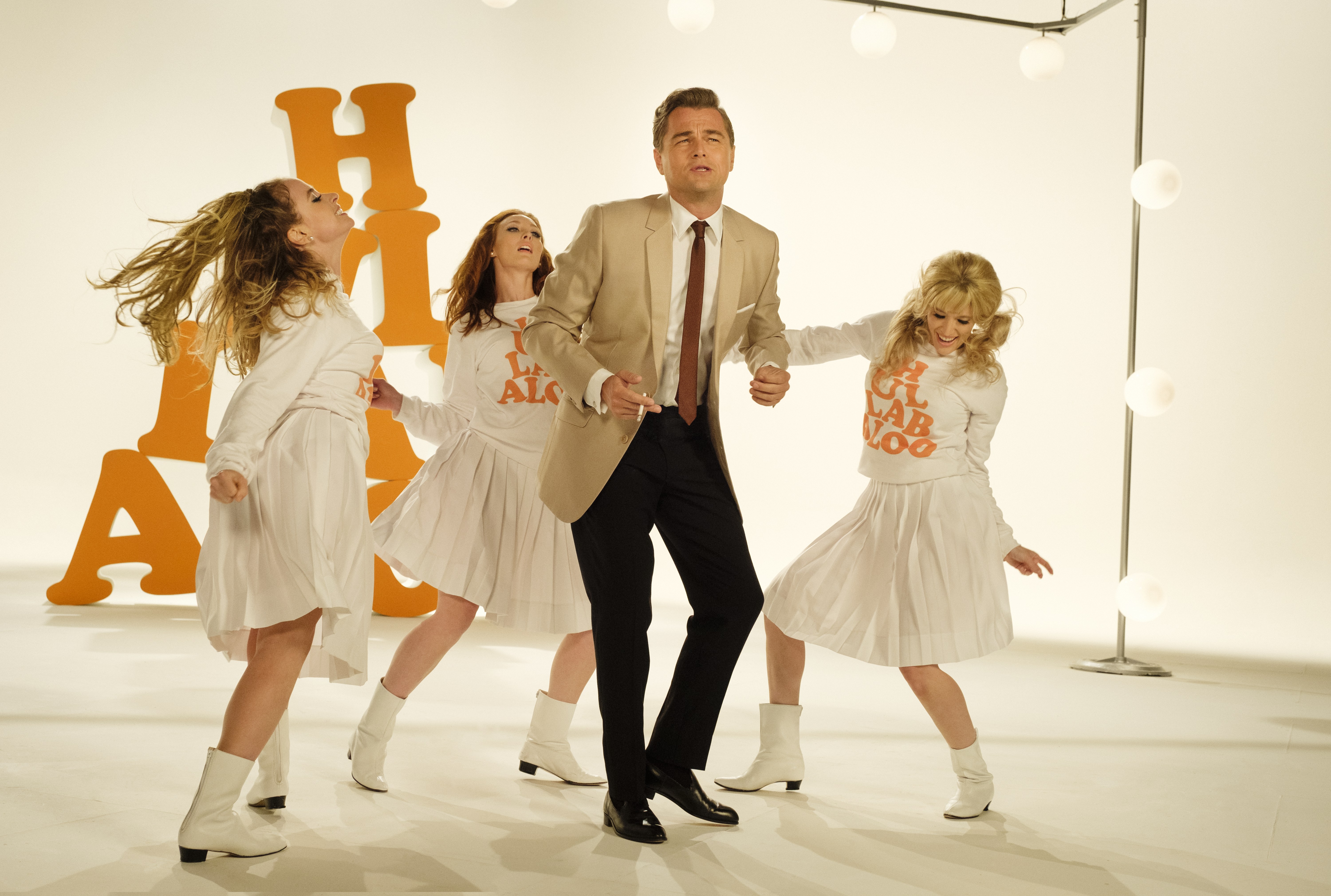
6) Once Upon A Time In Hollywood (dir. Quentin Tarantino)
You’d rarely ever call a Quentin Tarantino movie sentimental, but, surprisingly, his new love letter to the golden age of 1969 Hollywood ends up being the most sentimental movie of the year??? Following Leo DiCaprio’s Rick Dalton and Brad Pitt as his stuntman Cliff Booth, Once Upon A Time In Hollywood has more in common with The Big Lebowski then, say, Pulp Fiction. This is mostly because Tarantino, who is known for his hyper, over the top violence, takes his time here and allows the story of Dalton and Booth to unfold at a leisurely pace. With this change of structure, Tarantino lovingly looks at his love for old school Hollywood– the one that was lit up with neon signs and filled to the brim with stars. Cleverly setting it in 1969 right before the Manson murders, ‘Tino sets this up as an almost-final hoorah for the Hollywood he loves, before everything went to shit. But with Quentin, you can never expect a typical history lesson, so he not surprisingly flips the Manson murders on their head and changes the course for Sharon Tate (played perfectly by Margot Robbie). It’s in these subversions where Tarantino allows his old school violence take the wheel and delivers a hilariously gory sequence. Yet this scene takes place at the end of the 3rd act in a nearly 2 hour and 45 minute movie. It’s everything before it that makes Once Upon A Time in Hollywood one of Quentin’s best films; the small scenes of Booth traversing the Manson camp, Dalton slowly losing faith in himself on a television set, or Tate watching her movie in joyful glee. If anything, Hollywood proves Tarantino has a heart.

5) Marriage Story (dir. Noah Baumbach)
Noah Baumbach’s tale of divorce and custody battles isn’t much different than the 1979 divorce drama Kramer vs. Kramer. Yet even with the similarities, Baumbach makes Marriage Story feel incredibly unique. Though Baumbach was one of the many directors to popularize mumblecore, Marriage Story is anything but: a loud and abrasive film about two people (Scarlett Johansson and Adam Driver, delivering their best performances yet) who still obviously care for each other, yet have totally fallen out of love. There are no sides in this story, no rights or wrongs, and no hero and villain. This is a tale of a messy event in two people’s lives which not only deeply affects both, but ultimately breaks their very souls. All of the messy tension builds up to one of the most intense scenes of the year, in which both Johansson and Driver let out all of the anger and resentment they’ve been feeling. It’s heartbreaking and realistic, yet incredibly cathartic. Those moments following the fight are what propels Marriage Story into “one of the best films of the year” territory. The moments where these characters ultimately agree to their fate and make the best of it, culminating in an incredibly powerful, emotional, and oddly positive ending. Baumbach not only made one of the year’s best films, but a career-defining film that will ultimately be looked back on as his masterpiece.
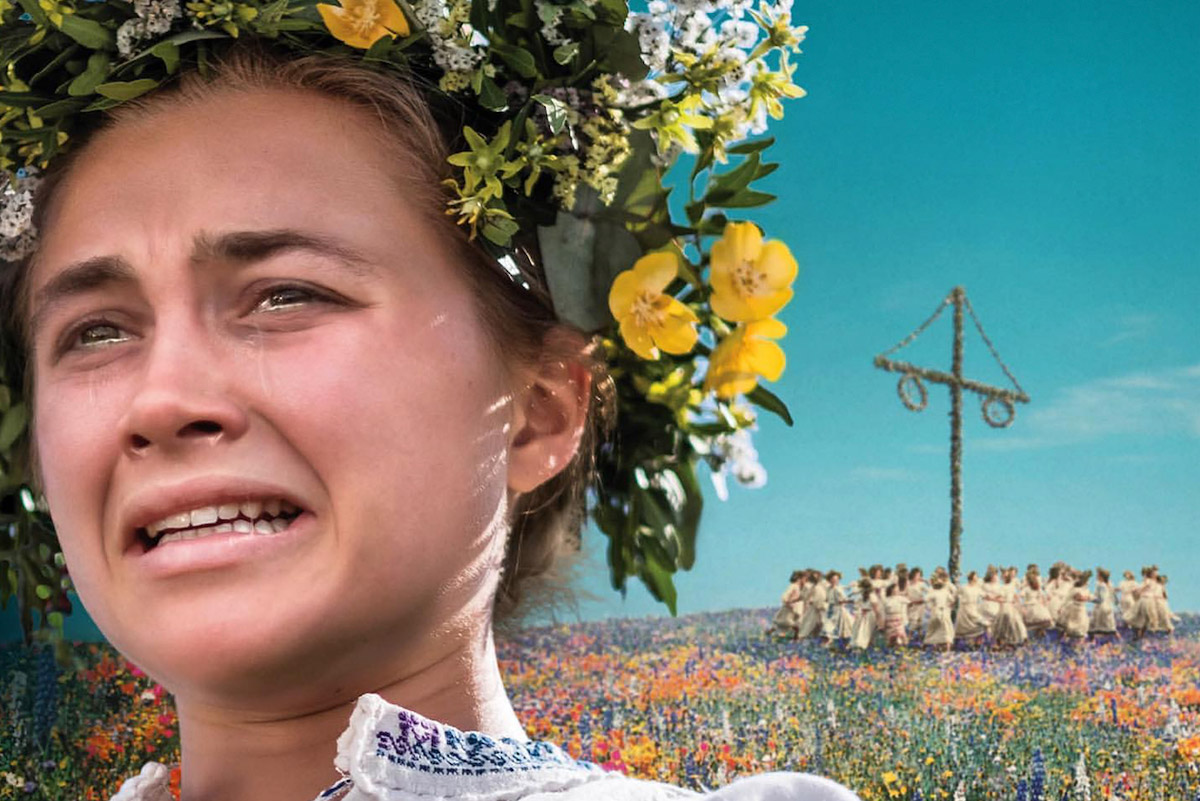
4) Midsommar (dir. Ari Aster)
Director Ari Aster is only two films in, and he’s already emerging as one of the best directors of our generation. His debut Hereditary was an intense family driven horror film (and my favorite film of last year), containing some of the most horrific shit we’ve seen in years and one of last year’s best performances from the one and only Toni Collette. Eventually, Hereditary proved to be a huge success in not only the horror world, but in the mainstream as well. With this newfound success, Aster could have totally played it safe and release another great haunted house movie. “Nahhh,” the man said, and instead followed up Hereditary with Midsommar, a two-and-a-half-hour psychedelic cult flick he likes to call “The Wizard of Oz for perverts.” He really isn’t wrong: Midsommar is filled to the brim with sexual frustration and an always horny heartbeat pulsating throughout the thing. Yet it’s in the fine details where Midsommar shines. Where Hereditary was about letting pain and loss consume you, Midsommar challenges that attitude. Instead, Aster is fighting back against loss, as if he’s giving the pain of losing a loved one the middle finger, stating “I’m going to burn this motherfucker to the ground,” figuratively and quite literally in the case of the film’s ending. Florence Pugh’s Dani (one of the year’s best performance) encapsulates this anger perfectly as she rages against the boyfriend that constantly weighs her down. On top of Pugh’s absolutely pissed off performance, Aster fills this film to the brim with the utmost gore; heads get crushed, bodies are burned, and faces are cut off and worn.
Midsommar is clearly a stranger film than Hereditary, but it’s that kind of risk taking that makes Ari Aster a future legend in the making.

3) Parasite (dir. Bong Joon-ho)
Usually I cringe at headlines, opinions, or reviews that open to the effect of “Believe The Hype,” but damn, when it comes to Parasite, they’re not wrong. Bong Joon-ho’s South Korean tale about classism and the ever-growing divide between the rich and the poor goes through many different transformations; from drama, to comedy, to thriller, to straight up horror. Yet despite the constant flipping of tones, never does Bong loss focus on the story at hand, in this case the relationship between the poor Kim family and the wealthy Park family. There’s a beauty in Bong’s ability to tell a complex story with such density and intensity yet never miss a beat in the themes at hand. I don’t wanna spell the plot out any more than I have, because the fun part of Parasite is to go in totally blind as I did. Just believe me and every single journalist out there this one time: believe the hype in Parasite.

2) The Lighthouse (dir. Robert Eggers)
Like Ari Aster, Robert Eggers is another A24 newcomer who blew up big with an indie horror flick. In the case of Eggers, 2015’s The Witch (or The VVitch) surprisingly took the mainstream’s heads and proceeded to crush them in 1600s New England dread. A lot of people hated it because a lot of people suck, but it proceeded to become a huge film in the indie circle. Fast forward to 2019, and, like Aster, Eggers releases a much weirder and harder-to-digest followup in The Lighthouse, a film featuring Robert Pattinson and Willem Dafoe as lighthouse keepers who start to slowly lose their minds over the course of who knows how long. In a way, The Lighthouse feels out of time; Eggers implements late 1800s dialogue for our leads to speak and couples this with the black & white look and a 1.19:1 ratio that would make Bergman blush. This lends itself to a hypnotic, nightmarish experience never really seen before in the modern horror world. In a way, I’d even argue against using the term horror for The Lighthouse, but I can’t find any other way to describe it, so for now it’ll have to suffice.
Yet even with the technical achievements from Eggers, it is in the performances from Pattinson and Dafoe that elevate this film. Both offer not only some of the best performances of this year, but a duo that you could never have imagined working so well. It’s as if we, the audience, are watching a tennis match between these two acting geniuses, and god damn is it a blast to witness. With The Lighthouse, Robert Eggers has crafted a brilliant Greek tragedy disguised as a horror period piece, one that is ultimately haunting, bat-shit crazy, and demented as hell.
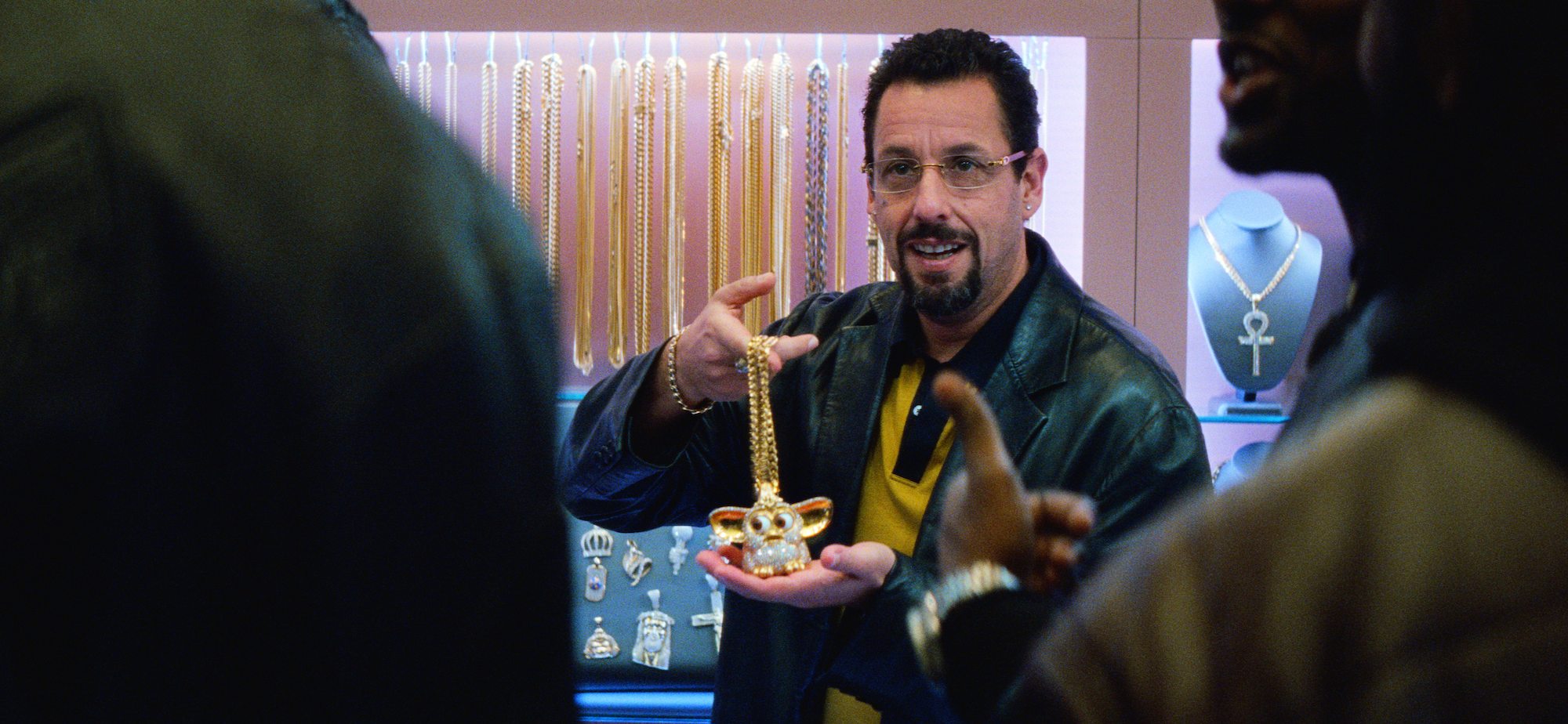
1) Uncut Gems (dir. Josh & Benny Safdie)
I knew Uncut Gems was going to be my favorite movie of the year right from the opening helicopter shot, which gives way to a Friedkin-inspired opening exploring the discovery of the uncut gem in question. The opening title sequence, in which an exploration of the insides of the opal transitions to the inside of main character Howard Ratner’s asshole, is the only moment in the two-hour-and-something running time in which Uncut Gems has any sense of patience and serenity. From here on out, directors/brothers Josh & Benny Safdie put the pedal to the metal and send this film at 115 mph to the finish line. Anxiety ridden and stress inducing, there is nothing quite like experiencing Uncut Gems. Characters speak over each other and the stakes become unfathomably higher, until at some point you realize there is no way Ratner will ever get out of this one. If you’re at all familiar with the Safdie Brothers’ previous films (Good Time and Heaven Knows What specifically), you know exactly what I mean. Yet it is in Uncut Gems where I feel the brother’s true intent is perfected, in which they want to tell a story about bad people doing bad things yet make these people sympathetic enough where you almost root for them to succeed. In the case of Howard Ratner, the money he owes to a great number of sharks on gambling is leading him down an even more dangerous hole with every bet he places, but as the audience, we want him to hit big. We want him to win that one parlay. We want him to pay everyone off with the money he’s attempting to win.
And while a lot of the sympathy for Ratner can be found in the Safdie bros’ writing, a lot of it can be placed on the acting from Sandler himself, here playing a character not much different than someone you would find in a Happy Madison production: oddly likable yet certified insane. The familiarity of Sandler’s goofball persona lets him flip Ratner on his head as the Safdies surround him with unknowns and people you wouldn’t expect to work well together, from model Julia Fox as Ratner’s mistress to Kevin Garnett, playing a version of himself obsessed with the opal Sandler is so desperate to sell in auction. Everyone in frame is perfect, and really elevates Uncut Gems into something special.
This is the Safdies’ best film. This is Adam Sandler’s best performance. This is the best film of the year, and one of the best of the entire decade.
“This is how I win.”

